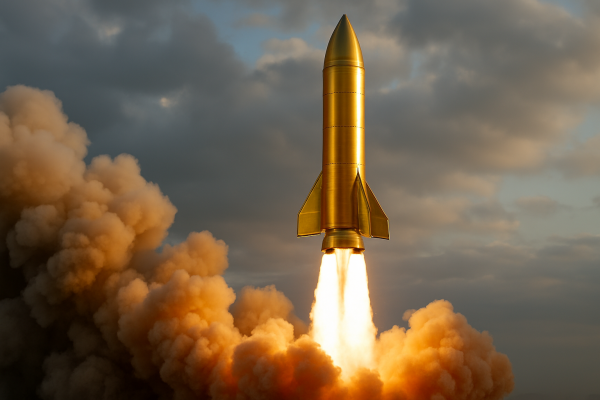February 24th, 2023 | 15:59 CET
dynaCERT, Mercedes-Benz, BYD - Is hydrogen the better alternative to electromobility?
New government measures are driving the shift from fossil fuels to renewables. While some of these measures defy logic (combustion car ban in the EU in 2023), others are leading to market changes that have a meaningful impact. The US Inflation Reduction Act, for example, is funneling money into the expansion of a nationwide hydrogen fueling station infrastructure. This is excellent news for the logistics industry, as tough cost calculations will determine the pros and cons of new forms of propulsion for heavy-duty trucks and commercial vehicles. This represents a market opportunity for the Canadian company dynaCERT, which provides switchable hydrogen drives. Hydrogen weighs less than electric batteries, and on the road, every kilogram counts for the freight. The Mercedes-Benz Group, including Daimer Truck AG, is also betting on hydrogen. China competitor BYD, meanwhile, has to reckon with cancellations for EV batteries because the devil is in the details here.
time to read: 4 minutes
|
Author:
Juliane Zielonka
ISIN:
DYNACERT INC. | CA26780A1084 , MERCEDES-BENZ GROUP AG | DE0007100000 , BYD CO. LTD H YC 1 | CNE100000296
Table of contents:

"[...] We are committed to stay as the number one Canadian and global leader in the Hydrogen-On-Demand diesel technology [...]" Jim Payne, CEO, dynaCERT Inc.
Author
Juliane Zielonka
Born in Bielefeld, she studied German, English and psychology. The emergence of the Internet in the early '90s led her from university to training in graphic design and marketing communications. After years of agency work in corporate branding, she switched to publishing and learned her editorial craft at Hubert Burda Media.
Tag cloud
Shares cloud
dynaCERT: With a cost-efficient solution for heavy-duty transports
The Inflation Reduction Act in the US provides funding to build a fueling station infrastructure to advance the progress of fuel cells in commercial vehicles. The more fueling stations there are, the higher the demand and the lower the price of hydrogen. Thanks to the IRA, things are now moving faster. According to forecasts, the market for hydrogen vehicles will grow by 2 million a year by 2030.
That is where Canadian company dynaCERT comes in, whose team has more than 18 years of expertise in hydrogen technology. dynaCERT has developed a unique HydraGEN™ technology that reduces carbon emissions from diesel engines, providing operators with significant fuel savings. The technology uses simple electrolysis to convert distilled water into H2 and O2 gases that are produced on demand. The key is "on demand."
Fleet operators today need to do the math quite carefully on whether to rely on electric batteries or hydrogen propulsion because both technologies are under development and still have immense costs associated with them. So a strategically valuable transition solution like HydraGEN™ technology can provide a bridge that saves fleet operators cash.
CEO Jim Payne explains, "a truck in North America travels an average of about 161,000 km per year and saves 10% on fuel with our technology. The saving is, therefore, EUR 0.56 per km." In the mining industry, dynaCERT's solution also pays off. There, commercial vehicles are used to transport rubble and minerals. These large earth-moving machines consume over 1 million litres of oily fuel annually. Hydrogen technology can achieve average fuel savings of 8 to 14%. So far, experts assume a 5% saving. HydraGEN™ technology beats the forecast by a long way. For the mining industry, commercial vehicles pay for themselves in less than six months.
The advantage of hydrogen vehicles over battery-powered ones is clear: because they only require a small amount of hydrogen, they are significantly lighter and can therefore transport heavier loads.
Mercedes-Benz Group: Daimler truck sales up by 14.2%
The logistics world remains on the move and is increasingly driving Daimler Trucks. In 2022, Daimler Truck's consolidated unit sales were up 14.2% compared to 2021, with 64846 trucks sold. The Trucks North America segment recorded an increase of 15.2%, with 186,779 units sold. The Trucks Asia segment also increased year-on-year, with sales rising by 8.8% to 155,967 units.
At the IAA Transportation 2022 in Hanover, Mercedes-Benz Trucks confirmed that it will expand its vehicle range to include series-produced trucks with hydrogen fuel cell drive systems in the second half of the 2020s. As dynaCERT has already successfully demonstrated, hydrogen-based powertrains can be a better solution, especially for flexible and demanding applications in the heavy-duty transport and long-haul segment. Less weight equals faster refueling than battery-powered vehicles.
The same conditions apply to electric trucks and conventional trucks, so transportation companies rationally choose their vehicles based on the total cost of ownership. Two reasons for choosing zero-emission drive technology are the existing infrastructure and the availability of sufficient amounts of green power. According to the truck manufacturer, this energy requirement can best and most cost-effectively be met by using green electricity and green hydrogen.
Since the restructuring of the Daimler Group in Q1/2022, the Mercedes-Benz Group still holds a minority stake of 35% in Daimler Truck Holding AG, of which approximately 5% is held in its pension assets.
BYD - Toxic substances in EV battery lead to Japan ban
Asian companies lead the world in technology when it comes to fuel cells. Toyota Motor Corp. has already filed thousands of patents for them and their components, with European and American companies lagging well behind. But e-mobility is in its infancy.
The Japanese company Hino Motors has canceled plans to market an electric bus made by Chinese electric vehicle maker BYD in Japan because the bus contains a chemical banned under Japanese industry guidelines, hexavalent chromium, Nikkei Asia magazine reported this week.
Hexavalent chromium used to be used in car components and production mainly because of its resistance to corrosion and various other properties. However, according to the latest findings, this substance is considered highly toxic and carcinogenic.
Since 2008, the substance has not been used in new cars in Japan after it was banned by the Japan Automobile Manufacturers Association (JAMA). The European Union prohibits the use of the substance in passenger cars. Hino is a member of JAMA, but BYD is not.
With culturally Asian friendliness, BYD responds to the substance question by saying, "Our EV buses for the Japanese market comply with all required laws and standards." When asked about the use of hexavalent chromium, the Company is silent and offers no comment. JAMA is not a government organization. Accordingly, BYD complies with the legal regulations. Only it is just not healthy.
The future of the energy transition on the roads will be decided in North America and Asia. BYD currently relies on electric batteries in trucks and transport vehicles, but in production, it has to be very careful about which substances are used, as some countries ban their use due to health risks. Hydrogen seems to be the better and more cost-efficient alternative. The Canadian company dynaCERT has developed hydrogen technology specifically for heavy-duty transport and commercial vehicles, enabling fleet operators to retrofit their diesel-powered vehicles to prepare them for the energy transition. Up to 10% fuel can be saved with dynaCERT technology. Mercedes-Benz says it prefers liquid hydrogen, which has more energy in terms of volume than gaseous hydrogen. This allows more energy to be transported, increasing range and enabling similar performance to a regular diesel truck. It takes innovative bridge builders like dynaCERT to actively support the future of logistics on the road.
Conflict of interest
Pursuant to §85 of the German Securities Trading Act (WpHG), we point out that Apaton Finance GmbH as well as partners, authors or employees of Apaton Finance GmbH (hereinafter referred to as "Relevant Persons") may hold shares or other financial instruments of the aforementioned companies in the future or may bet on rising or falling prices and thus a conflict of interest may arise in the future. The Relevant Persons reserve the right to buy or sell shares or other financial instruments of the Company at any time (hereinafter each a "Transaction"). Transactions may, under certain circumstances, influence the respective price of the shares or other financial instruments of the Company.
In addition, Apaton Finance GmbH is active in the context of the preparation and publication of the reporting in paid contractual relationships.
For this reason, there is a concrete conflict of interest.
The above information on existing conflicts of interest applies to all types and forms of publication used by Apaton Finance GmbH for publications on companies.
Risk notice
Apaton Finance GmbH offers editors, agencies and companies the opportunity to publish commentaries, interviews, summaries, news and the like on news.financial. These contents are exclusively for the information of the readers and do not represent any call to action or recommendations, neither explicitly nor implicitly they are to be understood as an assurance of possible price developments. The contents do not replace individual expert investment advice and do not constitute an offer to sell the discussed share(s) or other financial instruments, nor an invitation to buy or sell such.
The content is expressly not a financial analysis, but a journalistic or advertising text. Readers or users who make investment decisions or carry out transactions on the basis of the information provided here do so entirely at their own risk. No contractual relationship is established between Apaton Finance GmbH and its readers or the users of its offers, as our information only refers to the company and not to the investment decision of the reader or user.
The acquisition of financial instruments involves high risks, which can lead to the total loss of the invested capital. The information published by Apaton Finance GmbH and its authors is based on careful research. Nevertheless, no liability is assumed for financial losses or a content-related guarantee for the topicality, correctness, appropriateness and completeness of the content provided here. Please also note our Terms of use.




